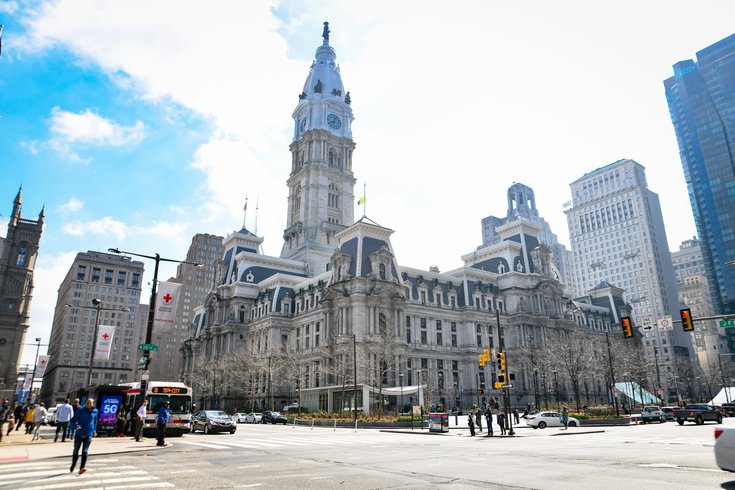
March 20, 2022
 Kate Frese/For PhillyVoice
Kate Frese/For PhillyVoice
Under a new bill, Philadelphia could be prohibited from using keeping money for foster children in the city's general fund. The legal but controversial practice has received increased scrutiny in recent years.
A controversial practice could be coming to an end in Philadelphia, as City Councilmember Helen Gym introduced a bill that would prohibit the city from keeping Social Security and other government benefits meant for foster children.
Though legal, the practice has come under some scrutiny following an investigation from the Inquirer in December 2021, which Gym said was the basis for the bill. From 2016 to 2020, the city kept $5 million in Social Security benefits from foster children without telling them, slipping them into the city's general fund.
Though the benefits are meant to be maintained for children after they age out of the system and become independent, the Department of Human Services is able to collect the benefits while the children are in the agency's custody. And while the benefits are not a funding stream for foster care services, the Inquirer found that the city was one of many that used the funding as a way to offshoot costs associated with the children in DHS custody.
If passed, the bill would require the agency to ensure that all children are screened for potential Social Security, Supplemental Security Income, Veteran's, or other eligible benefits within 60 days of entering DHS custody. Further, the agency must then apply for any benefits the child may be eligible for.
"These benefits belong to youth in our foster care system, and today Philadelphia takes a bold step in leading changes which must follow at the state and federal level," said Gym. "With this legislation, we can ensure that every child in our city's foster system has every resource owed to them — especially to guarantee the smoothest possible transitions as they age into independence."
Though the city would still be eligible to receive those benefits on behalf of the foster child, they would not be able to put the money into the city's general fund, and would not be able to use the benefits as a reimbursement for the costs associated with foster care.
Instead, the city would be required to use the benefits for the child's best interest, either providing for things that are not covered by the city or through health insurance — like hearing aids, if needed — or conserving the benefits for future use for the child. This, Gym says, is meant to be a way for foster children to have some stability as they age out of the system and into independence.
"While most children involved with the child welfare and juvenile justice systems face heightened obstacles to success and well-being, we know that some children face even larger financial and emotional burdens from their own disability or the death of a parent," said Frank P. Cervone, executive director of the Support Center for Child Advocates. "Social Security disability and survivor benefits offer a small bit of hope. What we can all agree on is a youth coming out of care is going to need that money a lot more tomorrow than the government does today."
The Inquirer found that in a typical year, DHS takes $1.3 million in benefits from roughly 380 children and adolescents in foster care. There is no regulated process for notifying youths if the city is receiving the benefits, keeping them or their legal representation to secure the money themselves.
A May 2021 investigation from NPR and The Marshall Project found that roughly 10% of foster children nationally are entitled to Social Security benefits, whether from the death of a parent or because of a mental or physical disability.
At least 49 states comb through foster children's case files to determine eligibility for benefits when youth enter the care system, then become the child's "representative payee," which enables them to receive the benefits on behalf of the child until they age into adulthood.
"It's completely unacceptable to ask children in foster care to pay for their own care," said Laurie Dow, vulnerable youth policy director at Children First. "The fact that the city is pocketing Social Security payments for foster children is an outrage. Those funds can, and must, be available to these children to meet needs that cannot be met by their foster care parents or available to them once they are no longer in foster care."
While the practice is legal, the NPR/Marshall Project investigation found that nearly all of the states reported using the funds they received as the representative payee to reimburse the state, city, or county for costs associated with foster care. Youth services advocates claim that the practice is similar to making children pay for their own foster care.
The practice has received intensified scrutiny in recent years, with Maryland becoming the first state in the country to outlaw the practice. Along with Philadelphia, New York City has also announced changes to its foster care system.
New York City officials will put all of the benefits into individual accounts that the child will be issued when they age out of the system.
In 2016, Illnois State Rep. Danny Davis introduced a bill in the U.S. House of Representatives that would prohibit state and local governments acting as representative payees to use the benefits reimburse the state. It has stalled since then.